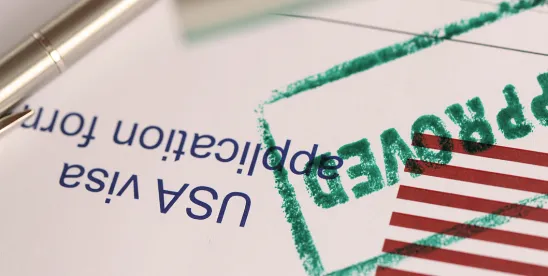The Department of State revised its guidelines in Volume 9 of the Foreign Affairs Manual (FAM) instructing consular officers how to handle requests for waiver relief for certain inadmissible nonimmigrant visa applicants.
Prior to the recent revisions, 9 FAM 305.4-3 instructed consular officers considering whether or not to recommend waiver relief for such applicants to consider a number of factors, including the recency and seriousness of the conduct that led to the specific finding of inadmissibility for the applicant, the positive or negative impact on the public interest of the United States from allowing the individual to enter the United States with a waiver, the likelihood that the conduct would be repeated, and evidence of remorse and rehabilitation. These standards, reflected in the finding in Matter of Hranka (16 I&N Dec. 491 (BIA 1978) have guided consular officers in considering whether to favorably recommend waiver relief for almost 50 years.”
The revised guidelines in 9 FAM 305.4-3, which are in an explanatory note, provide consular adjudicators with a new standard to apply to determine whether allowing the applicant to enter the United States with a waiver would have a positive impact on the public interest of the United States—whether the applicant
“has graduated from with a degree from an institution of higher education in the United States, or has earned credentials to engage in skilled labor in the United States, and is seeking to travel to the United States to commence or continue employment with a United States. employer in a field related to the education that the applicant obtained in the United States.”
The new guidelines may offer immediate positive benefits to persons who may have accrued unlawful presence while in the United States, made misrepresentations in connection with seeking benefits under the Immigration & Nationality Act (INA), or may have a criminal offense leading to inadmissibility by adding another element that can be presented in favor of a waiver request for those who were educated in and/or are seeking lawful employment in the United States.
Two other changes to the 9 FAM 305.4-3 guidelines concerning waiver requests are noteworthy. First, under the previous guidelines, if a consular officer declined to recommend waiver relief the applicant could nonetheless ask that their request be submitted to the Department of State for review based on the “clear and significant government or public interest of the United States” of allowing the otherwise inadmissible applicant to enter the United States. In practice this has rarely been successful because the bar for determining whether a positive interest exists has been set very high. The newly revised guidelines in 9 FAM 305.4-3(E)(2)(a)(4) now expressly define “significant public interest” to include travel to the United States to take up or resume skilled employment with a United States employer. For such individuals, pressing for waiver relief in the absence of a favorable consular recommendation may well result in one. Consular officers, faced with the possibility that declining to recommend waiver relief in such instances could be overturned upon review in the Department, may now think twice before doing so.
Second, inadmissible applicants now have access to a new argument in support of a request to expedite waiver review. “Previously, consular officers who were asked to expedite new or pending waiver requests would only do so in cases “where there is clear and significant U.S. government or public interest (9 FAM 305.4-3(F)(a)).” This language has been changed to define travel to the United States to commence or continue skilled employment as being a clear and significant positive public interest.
It is worth noting that the language of the new FAM guidelines is unclear as to whether it will apply to applicants seeking employment in the United States who were not previously educated in the United States. While the first phrase notes that consuls may consider positively a waiver request from an inadmissible applicant who has attended a United States institution of higher education or (emphasis added) has earned credentials allowing them to perform skilled labor in the United States, the second part of the new language expressly refers to education “that the applicant obtained in the United States.” Exactly how the Department, through its individual consular officers, determines to apply these seemingly contradictory instructions remains to be seen. That said, the expansion of “positive public interest” to include United States educated individuals seeking to work legally in the United States should not only make the waiver process easier to navigate but also make it easier to expedite the process, reducing or even eliminating long processing delays that prevent such individuals from returning to or beginning work in the United States. As such, it is a significant and positive development.




 />i
/>i

